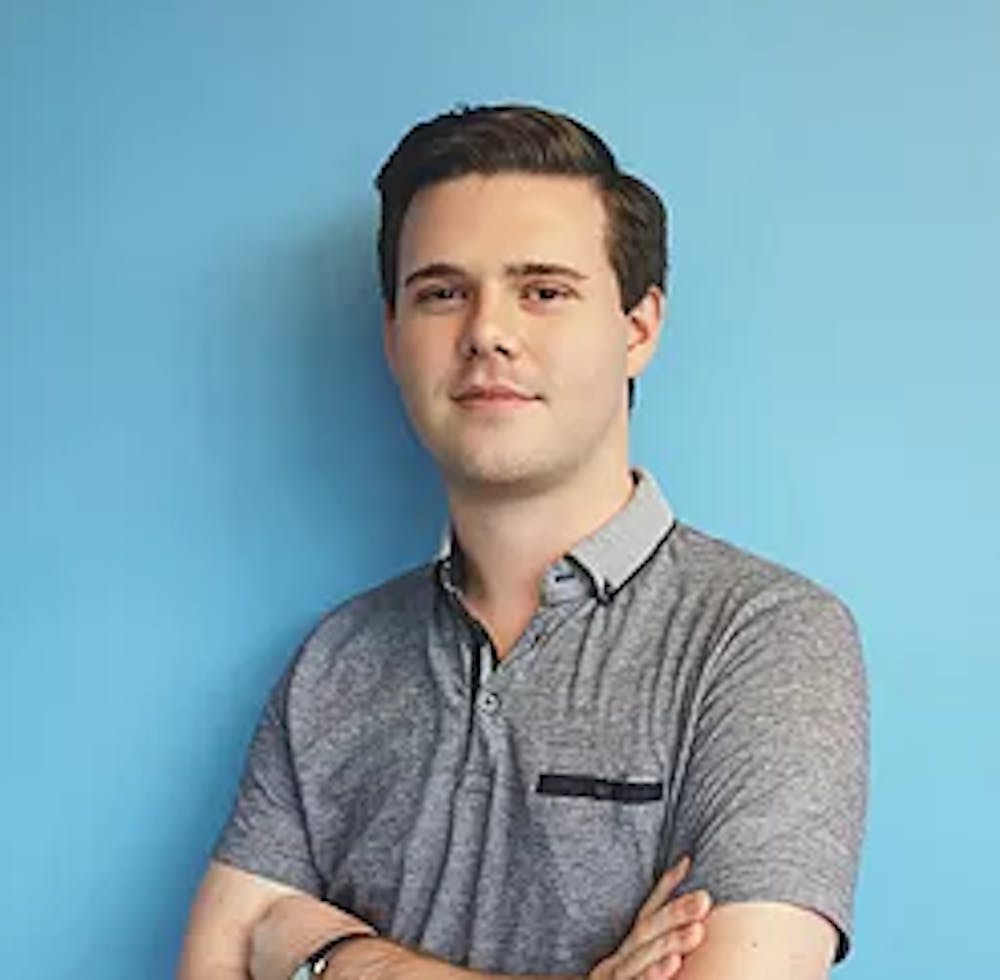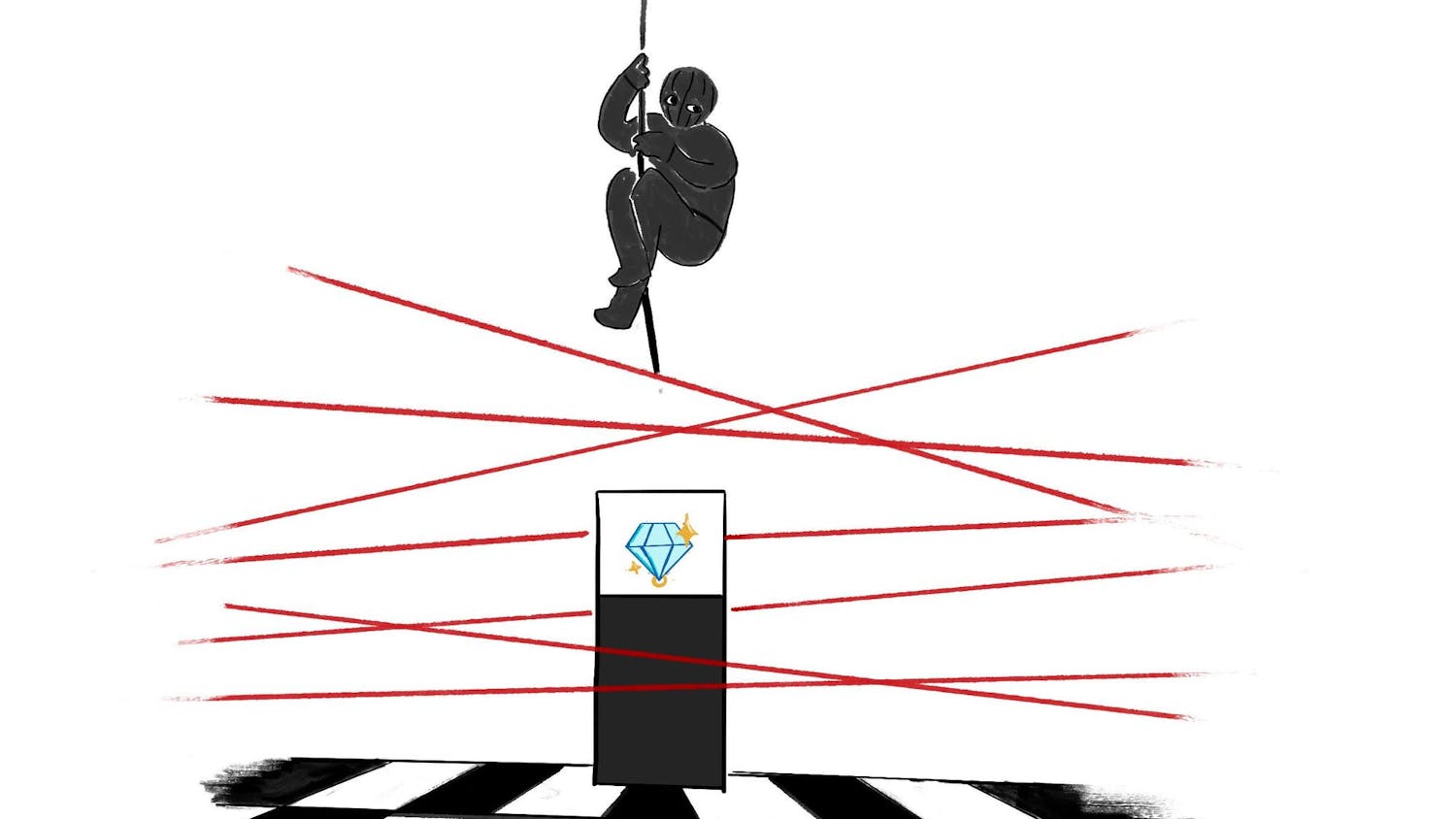On a small wooden desk covered by a thin pane of clear glass sits a Purple Heart, one of the most recognized American symbols of public service — a decoration awarded to service members wounded or killed in the line of combat.
The medal, adorned with the face of America’s first president, belonged to Lt. Byron Yarbrough, whose family once owned Pebble Hill cottage, Auburn’s oldest remaining home, built in 1847, where the medal sits today. The Yarbroughs were known as some of the city’s most notable public servants. Walking on the streets today, it’s not hard to find a lifelong resident whose mother or father was delivered by Byron’s father, Dr. Cecil Yarbrough, once the University physician.
To this day, Pebble Hill, also known as the Scott-Yarbrough Home — which was eventually given to the University in 1985 — serves as a beacon of public service and community engagement, and Byron’s purple heart sits on that same desk in the office of Mark Wilson.
Wilson oversees one of the College of Liberal Arts’ outreach programs and spends his time connecting students with the community and global impacts of their education and the University’s mission.
In a referendum, students recently selected Wilson, the director of Auburn’s Caroline Draughon Center for the Arts & Humanities, as their choice to deliver this year’s Final Lecture, and Byron’s purple heart will be on Wilson’s mind as he delivers the academic year’s pinnacle speech — a speech he plans to focus on public service and public sacrifice.

“It’s a story of service, and the University is at its best when it helps keep that story alive for another
The story of the purple heart and the person to whom it was awarded is one of love and loss. Byron was a true Auburn man, a 1942 graduate of Alabama Polytechnic Institute, as Auburn was known then. He later enlisted in the Navy and was commissioned as a lieutenant. While aboard ship during World War II, he became infatuated with a young woman from Cordele, Georgia, by the name of Betty Jones.
They wrote letters for months. Some were what you would expect
The pair were to meet after the war, but he never made it home. The anniversary of his death at sea, Feb. 17, 1945, was just last week. He died aboard one of a dozen gunboats helping to prepare for the invasion of Iwo Jima, the anniversary of which is coming up on Feb. 23.
The Caroline Draughon Center is preparing to publish the set of letters Byron and Betty exchanged and the series of letters Betty continued to send Byron until she was finally told of his death.
“The written word and the written letter are something we don’t often see,” Wilson said. “It connects to this house and this place.”
Byron’s story exemplifies to Wilson Auburn’s tradition of public service, a tradition both rooted in George Petrie’s Auburn Creed and derived from the University’s status as a land-grant school. Wilson will discuss how Auburn became a land-grant school and plans to impart the importance of the role to students during his Final Lecture.
“Being a part of a rich tradition doesn’t mean anything unless you know it,” he said. “You can live in a tradition that has great meaning, but if you don’t realize it and have some consciousness about it, then it has no value.”
His lecture will revolve around stories like Byron’s.
Wilson said Auburn has a great reputation
“One challenge for every university is us seeing ourselves as creating things for the private good,” Wilson said. “The students come to get a credential so that they can participate in the current economy.”
While that’s true, it isn’t the sole purpose.
“‘Capitalism is always in danger of inspiring men to be more concerned about making a living than making a life,’” Wilson said, recalling a well-known quote from civil rights icon Martin Luther King Jr.
Public universities have the distinct role of training their students to realize that their education isn’t just for themselves. It’s also for the communities they will live in and the world in which they will participate, Wilson said.
“If our education doesn’t make positive contributions to our communities so that the character of students is formed along with the marketability of their skills, then we haven’t done our job,” Wilson said.
Wilson will deliver the Final Lecture, a keynote speech sponsored by the Student
The commencement-style speech began in 2008 as an honor for respected faculty members.
Do you like this story? The Plainsman doesn't accept money from tuition or student fees, and we don't charge a subscription fee. But you can donate to support The Plainsman.

Chip Brownlee, senior in journalism and political science, is the editor-in-chief of The Auburn Plainsman.




